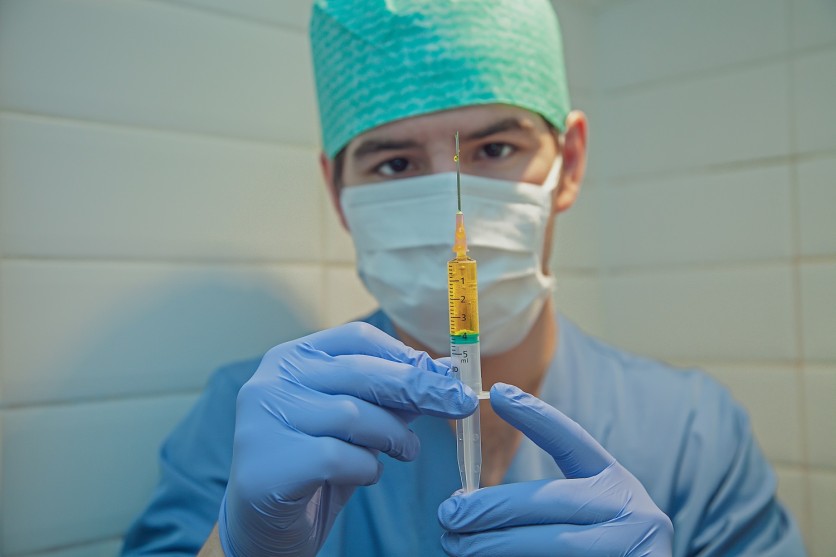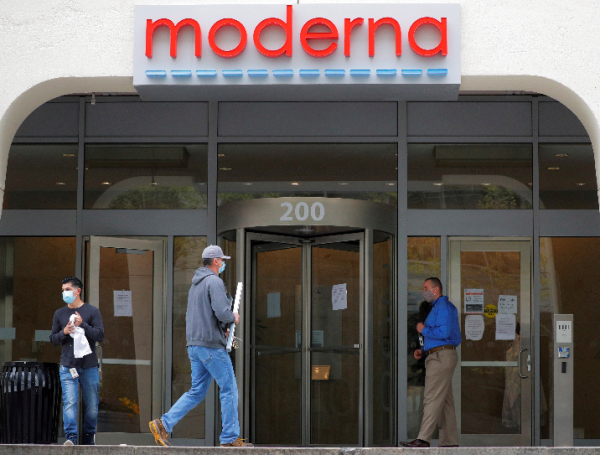Moderna has begun testing 30,000 volunteers for phase 3 clinical trial of its coronavirus vaccine on Monday, July 27, but questions on whether the company can be trusted have clouded the trial.
Moderna's trial is the first COVID-19 vaccine phase 3 trial in the United States. It joins other pharmaceutical companies, which are already testing the efficacy of their vaccines outside of the U.S. such as the AstraZeneca-University of Oxford candidate vaccine, which is currently being tested in Brazil and South Africa.
Currently, Moderna has 87 testing sites across the U.S. for phase 3 trials test the vaccine's safety and efficacy on a large number of people in different locations. This is the final stage before the vaccine gets approval and reaches the market.

Moderna Chief Executive Stephane Bancel told Business Insider the company aims to bring results by Thanksgiving. The FDA might quickly approve the vaccine for emergency use among high-risk people if those findings are good.
Moderna's phase 2 testing is still ongoing, but its phase 1 results showed the vaccine was overall safe and triggered immune responses among volunteers.
For the final stage, participants are divided into two groups: half will receive the vaccine while the other half will get a placebo. The vaccine will undergo a double-blind trial, so both researchers and volunteers would not know who get a placebo or vaccine. Each participant will receive two shots 28 days apart.
Read also: COVID-19 Vaccine: Moderna First Company to Announce Start of Phase 3 Trial Despite Adverse Reactions Reported
Never got a vaccine approval
Massachusetts-based Moderna has partnered with the National Institute of Allergy and Infectious Diseases to come up with the vaccine as of Operation Warp Speed, which aims to produce 300 million vaccine doses by January 2021. The project also includes partnerships between Pfizer and BioNTech as well as that between the AstraZeneca and the University of Oxford.

Started in 2010, Moderna has since focused on using synthetic mRNA to develop immune responses while other companies find it risky as mRNA delivery systems may generate adverse effects. In its initial public offering in 2018, Moderna raised over $600 million, which is the biggest in biotech IPO history.
An editorial published in the journal Nature in 2016 accused Moderna for choosing "stealth over disclosure of data" for not divulging its methods. However, Moderna has recently published its coronavirus vaccine findings in the New England Journal of Medicine.
STAT News' Damian Garde clarified that Moderna is different from the failed biotech company Theranos. Garde said that a lot of Moderna employees he spoke with confirmed that "there is some real science" in the company.
If this vaccine is approved, it would be the first vaccine approved by the company.
Read also: WHO Breaks Hopes for COVID-19 Vaccine Within This Year
The mRNA vaccine: Pros and Cons
Moderna is currently racing against three other vaccine candidates, which are already also on their phase 3 trials, which include candidate vaccines from Sinopharm, Sinovac, and the collaboration between the University of Oxford and AstraZeneca.
Moderna used technology, which is different from existing vaccines. The vaccine, called mRNA-1273, uses the messenger RNA technology to create a vaccine from a virus' genetic code.
According to The Verge, the mRNA provides tools to the body to "make their own medicine," instead of merely providing bits of virus to the immune system for target practice.
While it is a relevantly new technology, RNA makes vaccine development faster. This is the reason Moderna was the first to reach the final stage. These vaccines are also easy to manufacture, and if proven effective, companies could produce millions of doses fast.
the mere drawback of this technology, despite its simplicity and decades of work, is that it is still largely experimental that has never been approved by the Food and Drug Administration.
Like Moderna's vaccine, Pfizer's COVID-19 vaccine candidates also use the same technology. If any of them gets approval, it would be the first mRNA vaccine in the market.
After getting receiving the vaccine, volunteers' cells will then build the proteins while their immune systems would learn to mount a defense after being confronted with the spike protein.
"I believe it is a historic day: the first phase 3 COVID-19 vaccine being run in the U.S.," Moderna CEO Bancel told the Washington Post. She also noted Moderna's is the world's first phase 3 of a messenger RNA medicine.
Moderna vows to deliver 500 million vaccine doses a year, although it may rack up to produce 1 billion doses in 2021. Recently, Tech Times learned the U.S. government has doubled its investment in Moderna's vaccine candidate and committed $472 million in support of the large trial.
![Apple Watch Series 10 [GPS 42mm]](https://d.techtimes.com/en/full/453899/apple-watch-series-10-gps-42mm.jpg?w=184&h=103&f=9fb3c2ea2db928c663d1d2eadbcb3e52)



